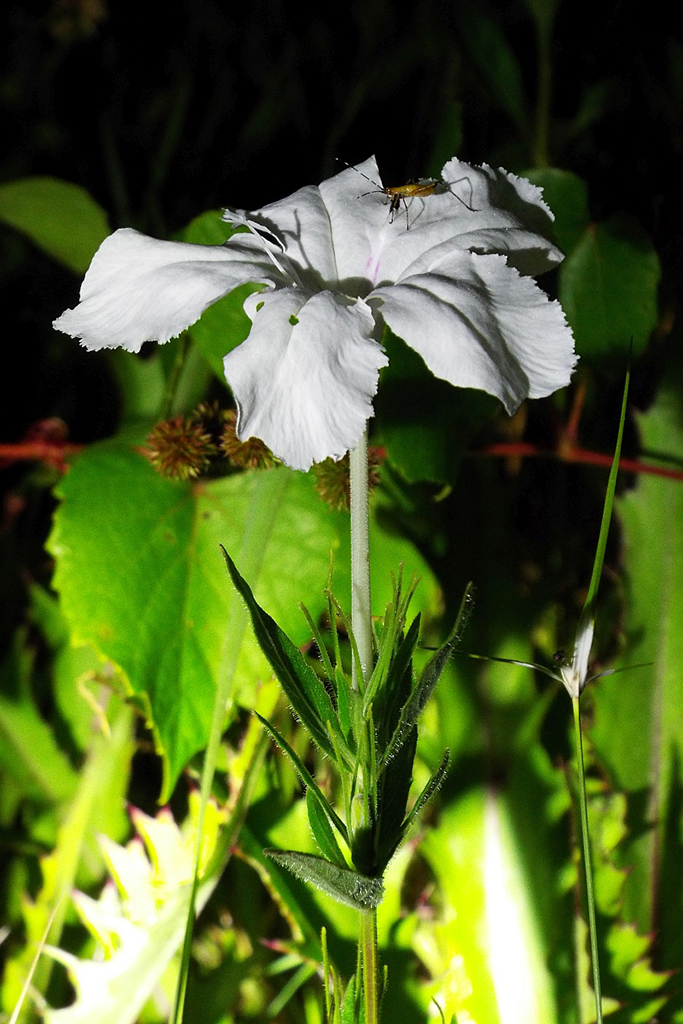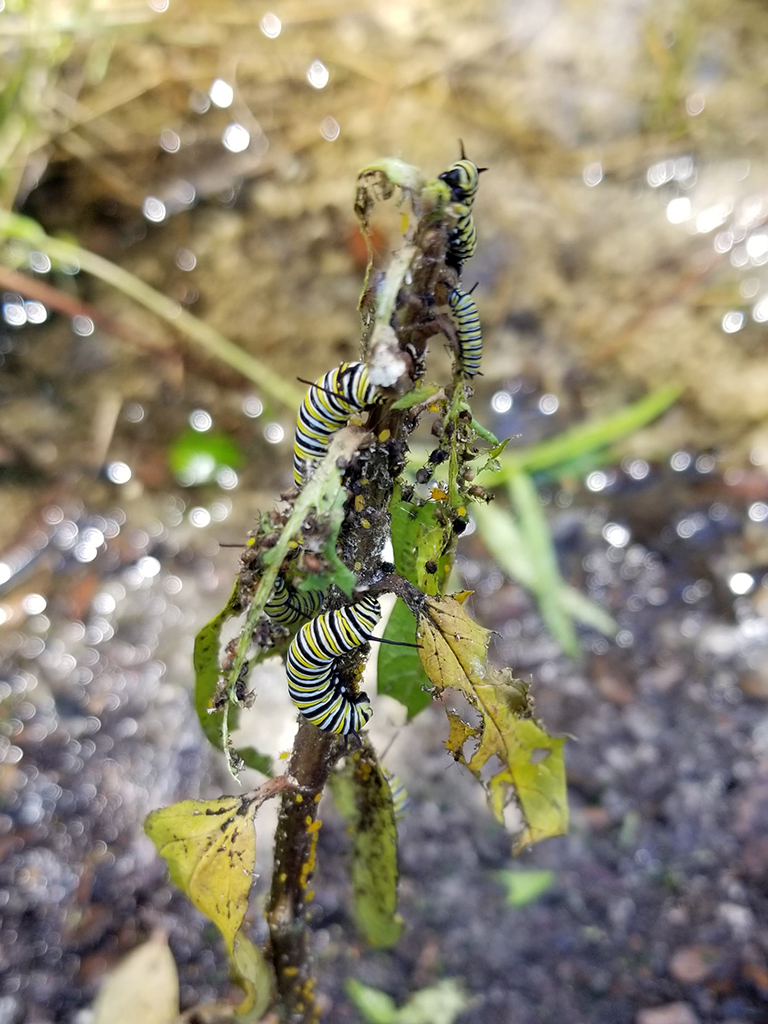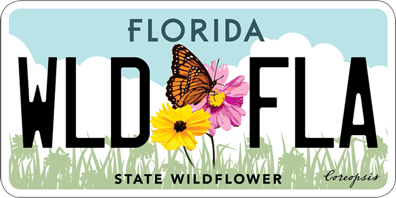Saving Roadside Plants Works!
When Scott Davis found a large population of the state-listed endangered Night-blooming petunia (Ruellia noctiflora) growing along US 98, he asked the Florida Department of Transportation (FDOT) to declare it a protected wildflower area. FDOT did. When the construction of the bike trail between Crawfordville and St. Marks was slated to roll right over the plants, Scott planned a rescue operation.
Volunteers from the Florida Native Plant Society (FNPS) Magnolia and Sarracenia chapters, St. Marks National Wildlife Refuge, Jacksonville Zoo, and Leon County extension office worked for three days in August 2017 to dig up approximately 1,000 petunia plants, several dozen Few-flowered milkweed (Asclepias lanceolata) plants, and a number of other roadside plants including Liatris spicata, Eryngium spp., Blue-eyed grass (Sisyrinchium spp.), Hibiscus spp., and Goldenrod (Solidago spp.). The plants were stored in wading pools at the St. Marks National Wildlife Refuge for several months until they could be replanted — many of which were returned to their original location after construction ended. Mortality among the displaced plants was low.
About a month later, 150 of the plants were installed around the Refuge’s education building. Hurricane Michael, a chilly, wet fall, and the federal government shutdown delayed restoration of the remaining plants. Finally, a window opened for March 15 and 16, 2019. Volunteers from the Magnolia and Sarracenia chapters came out to plant about 600 petunias and two dozen milkweeds. Although they have been in the ground not quite a month, they have attracted a score of female Monarchs, which means a lot of hungry caterpillars. The sweat and hard work of the volunteers has paid off.
As of April 12, there were approximately 100 petunias, a half dozen milkweeds, and about 200 other assorted plants left to transplant. They will be installed at St. Marks National Wildlife Refuge in the coming weeks.
Thanks to FNPS’ Magnolia and Sarracenia chapters, St. Marks National Wildlife Refuge, Jacksonville Zoo, Leon County Extension office, and FDOT for their assistance in protecting these plants for the future.

by Scott Davis

